General Synod 2019, aptly described as a “marathon” by Anglican Journal Editorial Supervisor Matthew Townsend, was a week of incredible highs and incredible lows.
For the first time since 1965, General Synod was convened in Vancouver, from July 10-16. The Very Rev. Peter Elliott, Dean of the Diocese of New Westminster and Rector of Christ Church Cathedral, welcomed the congregation of more than 200 voting members, as well as national, international, ecumenical and interfaith partners and observers, to the opening eucharist service at Christ Church Cathedral on downtown Vancouver’s bustling Burrard Street. Bishop Larry Robertson, of the Diocese of Yukon, officially welcomed all the members, acting on behalf of the Metropolitan, Archbishop Melissa Skelton who was unable to be present due to illness.
The celebrant, the Most Rev. Fred Hiltz, 13th Primate of the Anglican Church of Canada, led the service, which was held on the ancestral lands of the Musqueam, Tsleil-Waututh and Squamish Nations and began with an inspirational performance by the Kwhlii Gibaygum Nisga’a dancers. In his sermon, National Indigenous Anglican Bishop, soon to become Archbishop Mark MacDonald, called for a stronger response to secular culture. In place of the institutions of Christendom, he called on Anglicans to become once again a community of disciples.
"It is necessary for us to be disciplined in how we listen to the word of God, how we interact with one another, how we care for one another. To be a community of openness to all people, in a way that we never have been before” - a product of the love that Jesus cited as the primary output of proper Christian discipleship." This, he said, is how we will recover “the presence of Jesus in our midst” - the “true glory” and power of the church.
Each of us is known by a name given us at birth in love and with great joy, said Archbishop Hiltz opening the 42nd General Synod at the Sheraton Wall Centre the next day.
“In God’s sight, each and every one of us is ‘precious, honoured and loved.’ By name God calls us to particular ministries and by name we are upheld in prayer for the grace to fulfill those ministries. Through our vows in baptism, we are a people known by many names - disciples, friends, servants, repairers of the breaches, restorers of the streets, ministers for reconciliation, and advocates for justice and stewards of God’s creation. With these namings come great blessings and also great responsibility, much grace and much accountability,” he said in his final Presidential (Primatial) Address.
On July 12, Archbishop Hiltz apologized on behalf of the national church for “spiritual harm done to Indigenous peoples.
"Today, I offer this apology for our cultural and spiritual arrogance toward all Indigenous Peoples – First Nations, Inuit and Métis – and the harm we inflicted on you," Archbishop Hiltz said.
"In the Apology to survivors of the Residential Schools delivered on August 6, 1993, Archbishop Michael Peers expressed his remorse on behalf of the Anglican Church of Canada that 'we tried to remake you in our own image.' Today, I offer this apology for our cultural and spiritual arrogance toward all Indigenous Peoples – First Nations, Inuit and Métis – and the harm we inflicted on you.
"I confess our sin in failing to acknowledge that as First Peoples living here for thousands of years, you had a spiritual relationship with the Creator and with the Land. We did not care enough to learn how your spirituality has always infused your governance, social structures and family life..."
Read the response from Indigenous elders.
In an historic and nearly unanimous vote, members of synod approved changes to Canon XXII enabling a self-determining Indigenous church within the Anglican Church of Canada. Archbishop Hiltz blessed National Indigenous Anglican Archbishop Mark MacDonald, presented him with a metropolitical cross and bestowed him with the title of Archbishop.
Later that day, jubilation made way to anguish as the ongoing Marriage Canon debate resumed. The room went silent and young members of the Anglican LGBTQ2S+ community cried out and ran from the plenary hall as results of the second reading of the resolution to amend the marriage canon allowing for the solemnization of same-sex marriage were displayed on the screen. While the resolution received the required two-thirds majority vote from both the orders of laity and clergy, it failed in the order of bishops.
“Our children are crying,” said Archbishop Hiltz observing the pain in the room. "And many of you are crying, for a variety of reasons. So I think it’s time to adjourn. It’s time to leave this hall in silence. It’s time for you to go and do what you need to do—to cry, or to gather with delegates from your own diocese; to gather with friends, to gather in circles of prayer, just to try and be attentive to one another."
Several days later, the bishops made a joint statement saying, “Although not of one mind, we look with hope to the “Word to the Church” and its affirmations which General Synod 2019 overwhelmingly approved on Friday, July 12.”
They apologized for “the pain and anguish inflicted on LGBTQ2S+ people, on members of the General Synod, across the Church, and in the world, as a result of the work and the vote on the matter of Canon 21, concerning marriage. We see your tears, we hear your cries, and we weep with you. We have caused deep hurt. We are profoundly sorry…”
Read a comprehensive description of the debate and its immediate aftermath by Anglican Journal staff writer Matt Gardner.
Urging members of synod to reach out to one another in “gracious and extravagant love,” Bishop Jane said over social media “we must also be sure to make space to hear from those who experienced this grief and trauma from a distance.” In a message to the Edmonton diocese she likened the experience of General Synod to a "roller coaster":
"I am sure that for some in our diocese it has not helped for me to publicly state that I was in favour of a change in the marriage canon. If it is hurtful for you to know I am an advocate of inclusion in all sacraments for all the children of God regardless of sexuality, I am sorry to hurt you. However, please know there is no coercion for anyone to act or speak against their conscience and faith. I simply ask you to stay at the table with us."
Upon returning home, she outlined what she hopes will be a way forward in a “Letter to Clergy.”
Hope and optimism prevailed the morning of July 13, as members of General Synod gathered once again at Christ Church Cathedral to elect a new Primate. The Rt. Rev. Linda Nicholls, Bishop of Huron, was chosen on the fourth ballot as the 14th Primate of the Anglican Church of Canada. Upon hearing the news, Bishop Jane Alexander who was the only other candidate remaining on the last ballot and was sequestered with the other candidates during the election, tweeted: “So much love and congratulations to Linda our primate-elect.”
Nicholls, a self-described “Cradle Anglican,” told members of General Synod one of her first tasks at hand as Primate will be to help the Church overcome its divisions:
“We have reconciliation to do. And we have deep healing to work at. And I know that this church can do it,” she said. “I have seen this church rise to the challenge of its diversity; I’ve seen this church act in remarkable ways that the rest of the world does watch. And even though we at times can cause each other deep hurt and pain, I’ve also seen us rise to the challenge of that healing work of coming together around God’s table where our first calling is in Christ.”
General Synod passed many important resolutions in support of social and ecological justice, reconciliation, ecumenical and interfaith partnerships, to expand full communion, and pertaining to communications, finances, pension plan, church governance, ministry and discipleship, liturgy and worship. View the resolutions and a video record and selected highlights.
Throughout deliberations, members of synod demonstrated a deep desire to understand one another and each other’s differences.
“I applaud you for having these difficult conversations,” said Taanis Ryan, a Cree grandmother who shared her personal story during a presentation supporting a resolution to condemn the practices of human trafficking and modern slavery. “Without difficult conversations we cannot have change.”
Watch future issues of the Synod Scene and The Messenger for reflections from Athabasca and Edmonton delegates, in addition to stories about the ways the Edmonton diocese will be impacted by resolutions passed by General Synod.
Pictured top to bottom, left to right:
1. General Synod 2019 delegates from Edmonton diocese (l to r): Heather Liddell, Alan Perry, Bishop Jane Alexander, Ben Goetze, Dorothy Marshall, Stephen Martin
2. Diocese of Edmonton Bishop Jane Alexander addresses General Synod
3-4. Youth delegates, including Ben Goetze of the Edmonton diocese, receive hugs outside the plenary hall after the marriage canon amendment fails receive a 2/3 majority in the order of bishops
5. Members of General Synod arrive at Christ Church Cathedral, Vancouver for the Primatial Election on July 13, 2019
6-7. Outgoing Anglican Church of Canada Primate Fred Hiltz celebrated the Eucharist at the Primatial Election on July 13, 2019
8. Josie De Lucia from the ACC general secretary office receives communion during the Primatial Election Eucharist
9. Edmonton diocese delegate Dorothy Marshall receives communion during the Primatial Election Eucharist
10. Edmonton diocese youth delegate Ben Goetze receives communion
11. Stephen Martin participating in Primatial Election Eucharist
12. Outgoing ACC Primate Fred Hiltz gives the Metropolitical Cross to prolocutor Cynthia Haines-Turner
13-15. Edmonton Bishop and Primatial Election candidate Jane Alexander attends the eucharist with husband Tim Alexander.
16. Alan Perry, executive archdeacon of the Edmonton diocese and member of General Synod, prepares to cast his vote for ACC Primate
17. Tim Alexander waits for the Primatial Election fourth ballot results
18-19. Outgoing Primate Fred Hiltz and Primate-elect Linda Nicholls are greeted on the steps of Christ Church Cathedral, Vancouver by fellow members of the House of Bishops.
20. Primate-elect Linda Nicholls
21. General Synod youth delegates present a prayer shawl to Primate-elect Linda Nicholls
22. General Synod Officers (from left): General Secretary Assistant Josie De Lucia, Chancellor David Jones, Primate Fred Hiltz, Prolocutor Cynthia Haines-Turner, General Secretary Michael Thompson
23. Dorothy Marshall speaks to General Synod about her role as Diocese of Edmonton representative for PWRDF
24. Scott Sharman, Anglican Church of Canada ecumenical and interfaith relations animator and canon of the Edmonton diocese, presents a resolution affirming “A Common Word” - a way of building closer relationships between Christians and Muslims
25. As General Synod celebrated full communion among the Anglican Church of Canada (ACC), the U.S.-based Episcopal Church (TEC), the Evangelical Lutheran Church in Canada (ELCIC) and the Evangelical Lutheran Church in America (ELCA), Michael Curry, Episcopal Church Presiding Bishop, said “God’s love does not know borders”
26. Indigenous Elders of General Synod 2019 and Archbishop Mark MacDonald receive the Anglican Church of Canada’s Apology for Spiritual Harm
27. At the General Synod 2019 Closing Eucharist the altar was decorated with strips of coloured paper enhanced with texts, prayers written by delegates and participants. The artwork was inspired by Christ Church Cathedral, Vancouver’s artist-in-residence Thomas Roach in response to the theme - "I Have Called You By Name"
28. Primate-elect Linda Nicholls arrives for her installation service at Christ Church Cathedral, Vancouver
29. Canon John Kwafanka, Director for Mission for the Anglican Communion, preaches the sermon during the General Synod 2019 Closing Eucharist
30. Christ Church Cathedral, Vancouver in the Anglican Diocese of New Westminster




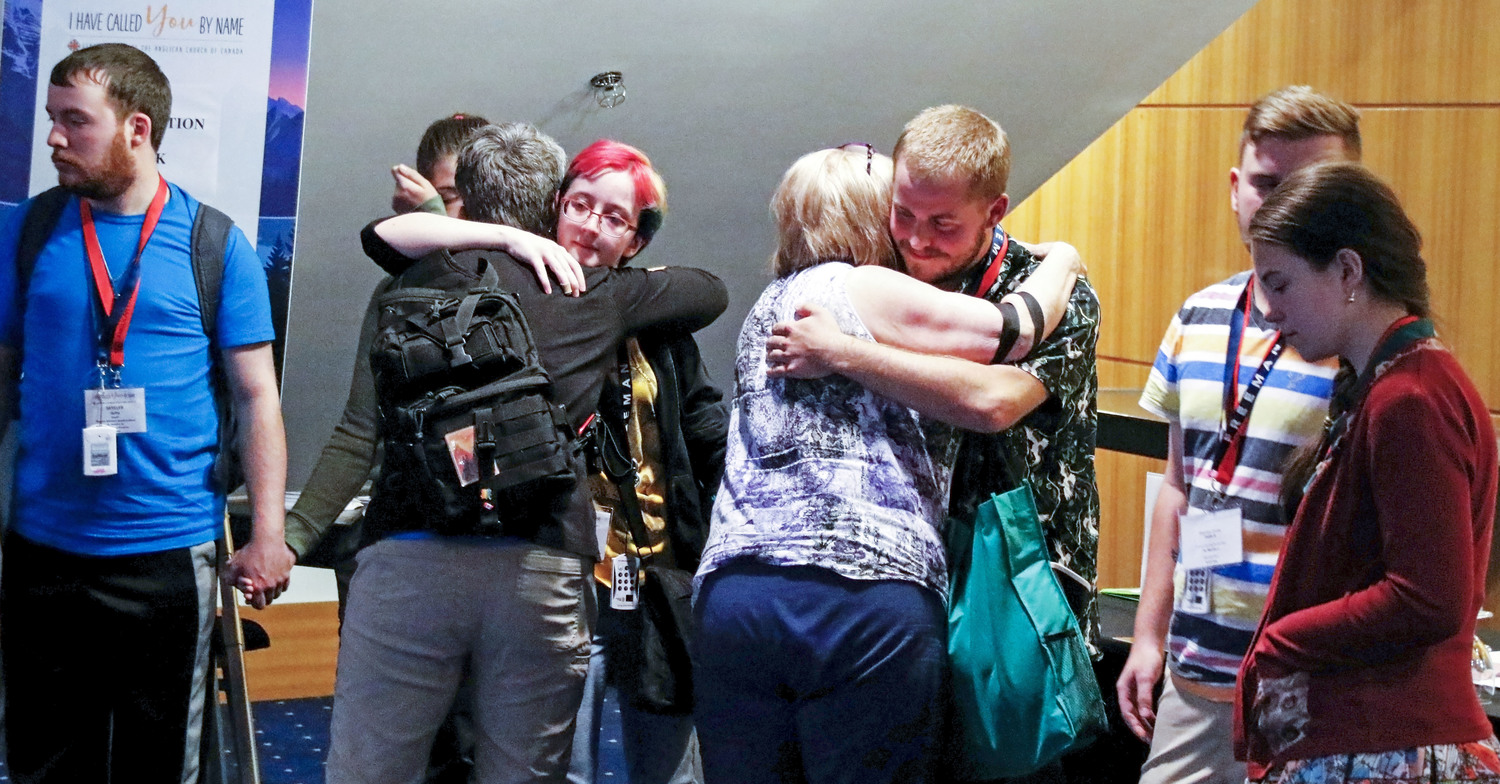

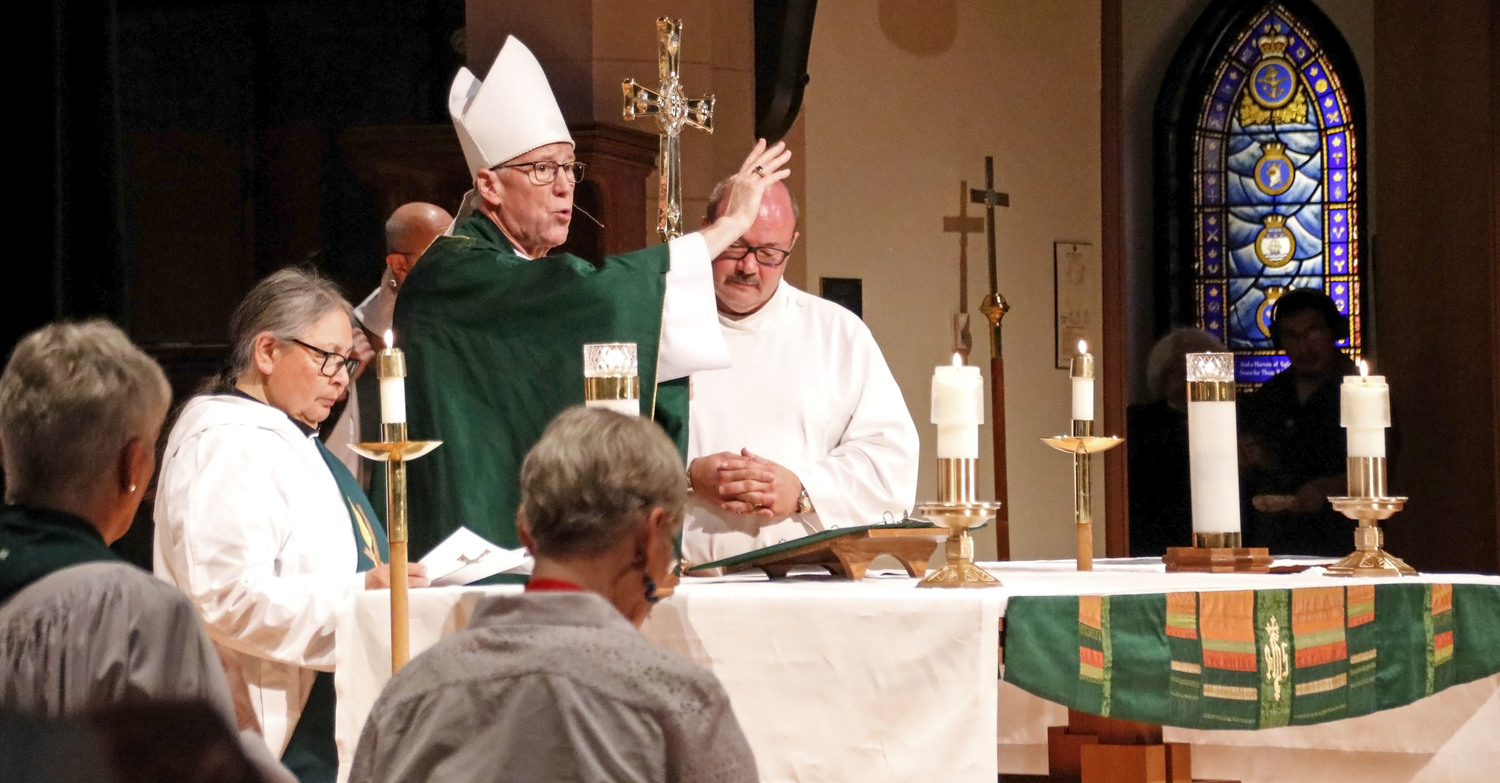















%20Josie%20De%20Lucia,%20Chancellor%20David%20Jones,%20Primate%20Fred%20Hiltz,%20Prolocutor%20Cynthia%20Haines-Turner,%20General%20Secretary%20Michael%20Thompson_web.jpg)





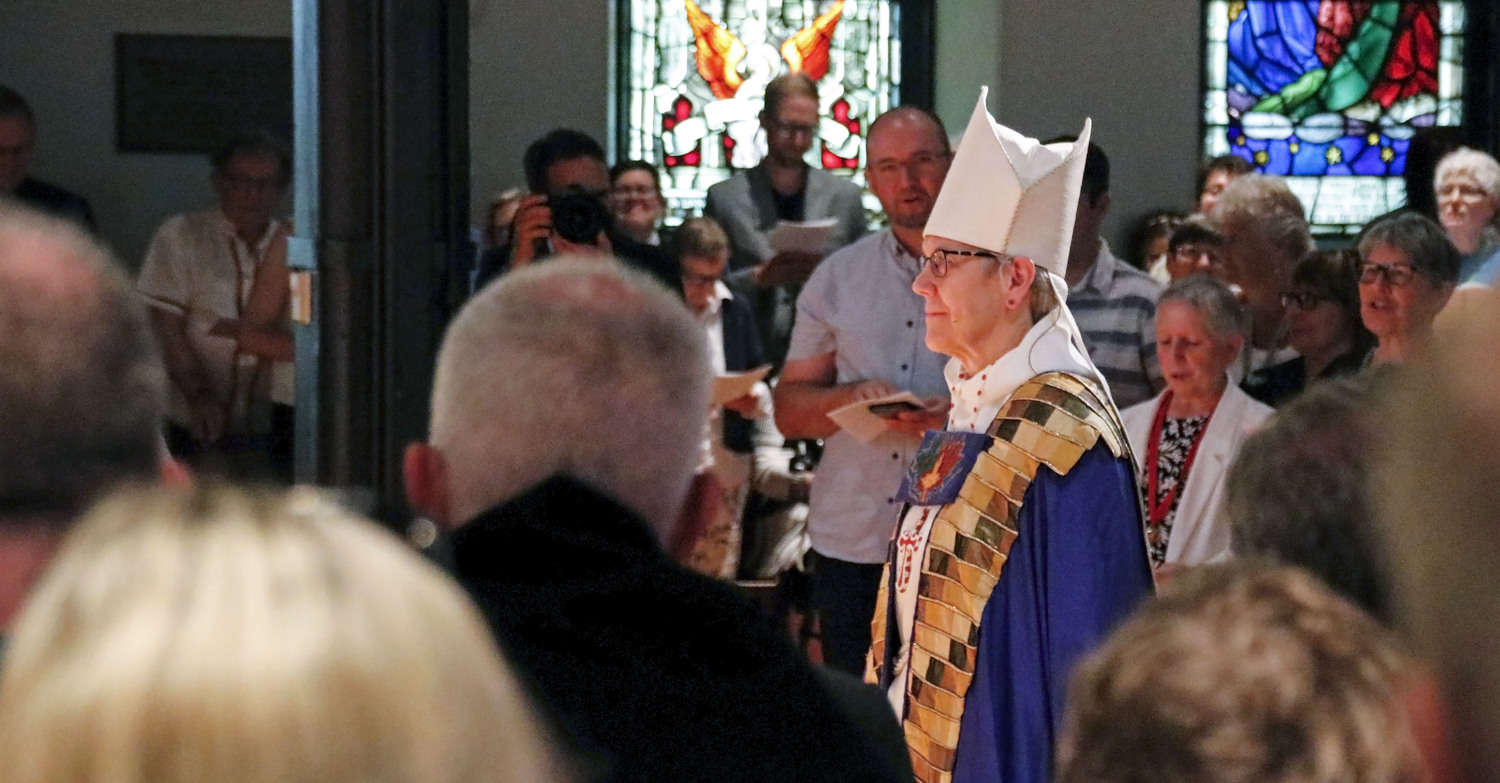













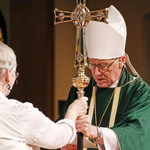



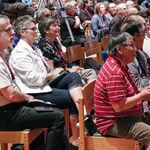





%20Josie%20De%20Lucia,%20Chancellor%20David%20Jones,%20Primate%20Fred%20Hiltz,%20Prolocutor%20Cynthia%20Haines-Turner,%20General%20Secretary%20Michael%20Thompson_web.jpg)












